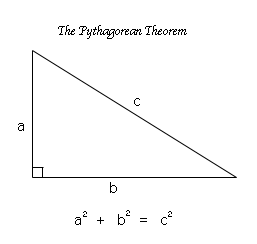Descartes' Argument that He is Distinct from His Body
In the first paragraph of his Sixth Meditation, Descartes wrote:
I have never judged that something could not be made by [God] except on the grounds that there would be a contradiction in my perceiving it distinctly [that is, in my conceiving of a situation in which it is true.]
Descartes seems to be saying here that: if one can conceive of something without contradiction, then that thing is possible (it is possible for God to make that thing obtain).
Later in the Meditation, we get the rest of Descartes' argument. It goes:
I know that everything which I clearly and distinctly understand is capable of being created by God so as to correspond exactly with my understanding of it. Hence, the fact that I can clearly and distinctly understand one thing apart from another is enough to make me certain that the two things are distinct, since they are capable of being separated, at least by God... It is true that I may have...a body that is very closely joined to me. But nevertheless, on the one hand I have a clear and distinct idea of myself, in so far as I am simply a thinking, non-extended thing; and on the other hand, I have a distinct idea of body, in so far as this is simply an extended, non-thinking thing. And accordingly, it is certain that I am really distinct from my body, and can exist without it.
We can formulate Descartes' argument here like this:
- If I can conceive of something without contradiction, then that thing is possible (it is possible for God to make that thing obtain).
- I can conceive of myself existing solely as a thinking thing, with no body.
When we say you "conceive of" some situation, we don't mean that you believe that that situation really obtains. We just mean that you can coherently think about that situation. So, you can conceive of a situation in which pigs fly; but you cannot conceive of a situation in which 2+2=5.
- I can conceive of my body existing solely as a non-thinking thing, without me inhabiting it.
- So it must be possible for me and my body to be separated.
- So I am really distinct from my body, and it is possible for me to exist without my body.
Arnauld's Criticism
In his Objection to the Sixth Meditation, Arnauld argues that the mere fact that Descartes can conceive of a situation in which he exists but has no body does not show that such a situation is really possible. Perhaps Descartes is ignorant of certain facts about his nature. Perhaps it really is part of his nature to have a body; it's just that he doesn't know this; and that's why he can conceive of himself existing without any body.
 Compare a man who imagines there to be a right triangle where the squares of the sides do not add up to the square of the hypotenuse. If the man did not know that the Pythagorean Theorem is true, or if he wrongly believed the Pythagorean Theorem to be false, then he would be able to think of a right triangle with those bizarre properties. But this would not show that such a right triangle really would be possible.
Compare a man who imagines there to be a right triangle where the squares of the sides do not add up to the square of the hypotenuse. If the man did not know that the Pythagorean Theorem is true, or if he wrongly believed the Pythagorean Theorem to be false, then he would be able to think of a right triangle with those bizarre properties. But this would not show that such a right triangle really would be possible.
So why should Descartes' case be any different, Arnauld asks. Why does the fact that Descartes can think of a situation in which he exists but his body does not show that it is genuinely possible for such a situation to obtain? Perhaps Descartes is really just a body which thinks. He can only imagine himself existing without his body because he is ignorant of this fact about himself.
Who is right? Arnauld or Descartes? To assess this debate we need to spend some time talking about the relationship between what we can conceive of or imagine, and what is genuinely possible.
 Compare a man who imagines there to be a right triangle where the squares of the sides do not add up to the square of the hypotenuse. If the man did not know that the Pythagorean Theorem is true, or if he wrongly believed the Pythagorean Theorem to be false, then he would be able to think of a right triangle with those bizarre properties. But this would not show that such a right triangle really would be possible.
Compare a man who imagines there to be a right triangle where the squares of the sides do not add up to the square of the hypotenuse. If the man did not know that the Pythagorean Theorem is true, or if he wrongly believed the Pythagorean Theorem to be false, then he would be able to think of a right triangle with those bizarre properties. But this would not show that such a right triangle really would be possible.